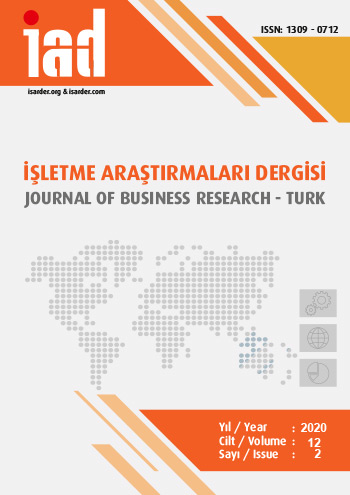(The Impact of Relational and Technological Resources on E-Loyalty: A Study on Public and Private Bank Customers)
Keywords:
E-Loyalty, E-Service Quality, E-SatisfactionAbstract
Purpose – This research; The aim of the study was to investigate the effects of relational and technological resources on e-loyalty among private and public bank employees. Design/methodology/approach – The questionnaire prepared in line with the objective was applied to 226 commercial customers receiving service from private and public banks in Niğde city center in 2019. The data obtained were analyzed in computer environment. The relationship between relational and technological resources and e-loyalty was analyzed by correlation analysis and the effect of relational and technological resources on e-loyalty was analyzed by regression analysis. In addition, the perceived level of offline service quality, e-service quality, satisfaction from e-services, reliability and loyalty (relational and technological resources) and e-loyalty levels of the bank's services according to the ownership status of the bank (Private and Public) differentiation status of independent groups t- test. Findings – As a result of the correlation analysis, a significant positive correlation between e-loyalty and relational and technological resources e- (offline service quality, e-service quality, e-satisfaction, reliability and commitment) was found. The regression model established to determine the effect of relational and technological resources on e-loyalty was found to be significant. In the study, it was also found that the perception and e-loyalty levels of the customers receiving service from public or private banks regarding the relational and technological resources of the banks did not show statistically difference. Discussion – It has been concluded that offline service quality, e-satisfaction and commitment from relational and technological sources increase e-loyalty positively and that e-service quality and reliability have no effect on e-loyalty. It is thought that these variables which are close to each other should be handled separately. Because, when viewed holistically, it is determined that relational and technological resources explain customer loyalty at 95% level.
Downloads
Published
How to Cite
Issue
Section
License

This work is licensed under a Creative Commons Attribution-NoDerivatives 4.0 International License.





